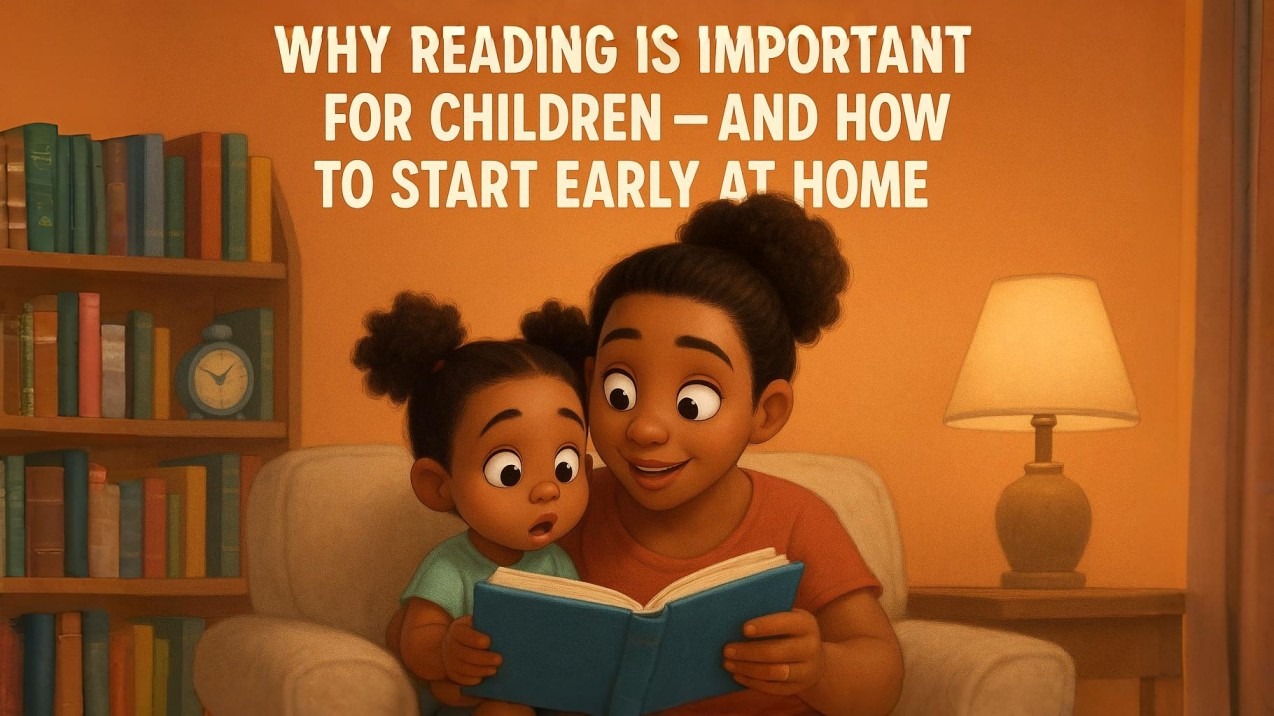Loading advertisement...
08-07-2025

Reading is one of the most valuable habits a child can develop. It lays the foundation for success not only in school but also in life. From boosting brain development to building emotional intelligence, the benefits of reading are endless — and the earlier you start, the better.
1. Supports Brain Development
In the early years, a child’s brain is growing rapidly. Reading stimulates brain activity and helps build neural connections related to language and understanding.
2. Builds Strong Language Skills
Children who are exposed to reading early develop better vocabulary, grammar, and comprehension skills. They learn how language works through stories and conversations.
3. Improves Academic Performance
Children who read regularly tend to do better in school. They develop better focus, memory, and problem-solving skills, all of which are important for academic success.
4. Enhances Creativity and Imagination
Books transport children to different worlds. They introduce characters, adventures, and magical places that spark imagination and inspire storytelling.
5. Develops Empathy and Emotional Intelligence
Reading about diverse characters and experiences helps children understand emotions and build empathy — a vital social skill.
6. Strengthens Family Bonds
Reading together creates quality time. It’s a calming routine that helps parents connect with their children while promoting learning.
1. Start From Infancy
Even newborns benefit from hearing stories. It helps them become familiar with the rhythm and sounds of language.
2. Choose Age-Appropriate Books
0–1 years: Board books with bright images
1–3 years: Rhyming books, touch-and-feel books
3–5 years: Short stories with simple plots
6+ years: Picture books, early readers, fairy tales
3. Make Reading Fun
Use different voices, gestures, and facial expressions. Let your child turn the pages and point to pictures.
4. Set a Daily Reading Time
Make reading a routine — before bed, after school, or even during meals. Consistency helps children form strong habits.
Set up a cozy corner with cushions, bookshelves, and good lighting. Make it a special place just for reading.
5. Let Them Choose
Allow your child to pick books based on their interests — animals, vehicles, princesses, space, or sports.
6. . Use the Library
Visit libraries or school book fairs to explore a variety of books. It also teaches children responsibility and respect for books.
| Tip | Why It Helps |
|---|---|
| Read daily | Builds routine and language skills |
| Ask questions while reading | Improves comprehension and critical thinking |
| Relate stories to life | Makes reading meaningful and memorable |
| Be patient and encouraging | Builds confidence and love for books |
Reading is not just about words on a page — it’s about building a child's future. By starting early and making it enjoyable, you are giving your child a lifelong gift: the joy of learning.
📚 Start today. Read together. Grow together.
✅ Stay connected with Skool Guru for more educational tips, exam strategies, and academic guidance.
📞 Need help? Contact our mentors today!
Visit: www.skoolguru.in